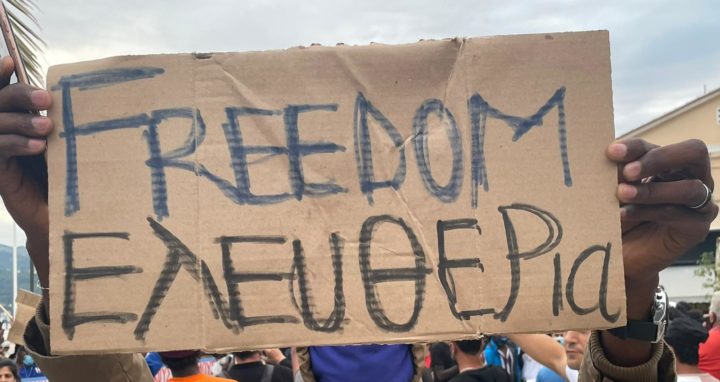When we tell stories about displacement, asylum processes and claiming refuge we often focus on the process itself, the violence of borders, the conditions in camps, the numbers of people who find themselves stuck waiting for a decision. The reason being that these factors are important, they highlight the cruelties of Europe’s asylum processes and the violence of its borders.
But what sometimes gets forgotten is what is lost whilst the waiting is taking place. The endless amounts of time that is taken from people, in a process that is often lengthy, complicated, infuriating, confusing and as one person said to me ‘illogical’. On the Greek island of Samos, where I am writing this from, people find themselves stuck here for 2 years, 3 years, even 4 years. This is particularly the case for young men and women travelling alone.
Whilst they wait here for their interview, a first decision, potentially an appeal, a second decision, the chance to have their geographical restrictions lifted so they can move to the mainland to wait out the process there, or even their documents after a positive decision has been given and asylum granted, the time keeps on passing by. What makes this particularly difficult on a small island is that there are limited things to do to fill this time. There are a range of brilliant NGOs on the island that support people with a variety of aspects of daily life. With access to food and the opportunity to volunteer in a kitchen and develop skills, with educational spaces for adults and young people, with safe spaces, with access to laundry and practical skill sharing. For some people this provides a space to spend some of their time as they wait on the island, a place in which one person told me, ‘I hope that I can be useful’, supporting others, learning languages or simply building communities.
A number of people have reminded me recently though of just how damaging the loss of time can be, and particularly for young people and children. This becomes even more concerning when you realise that the asylum procedure is only the first step to restarting your life in a new country, often away from friends, family and support. There is still a need to find opportunities to move to the next step, to access education or employment, to find a place to call home and to start building roots. In a country like Greece for example, that has limited scholarship programmes for those seeking asylum to access Higher Education, as well as limited job opportunities in an economy that has struggled through multiple crises the next step is also a difficult one. This is particularly concerning at a time when Germany and other Northern European states are putting a ‘freeze’ on the cases of people claiming asylum in Germany that have already received protection in Greece, suggesting that one more door to moving on to the next step may be closing.
So on Refugee Day this year it is important that we fight for a different system, one that doesn’t require people to put their lives on hold for many years, waiting for the day it starts again with no real indication of when a decision will be made, how long it will take or what it will be. Time is something that no one can get back and for the next generation, in particular, they have a right to an education, to play, to be with friends, to be children. A lot of that gets lost when you are forced to wait, with your life on pause for the day a bureaucratic decision enables you to maybe take the next step.










